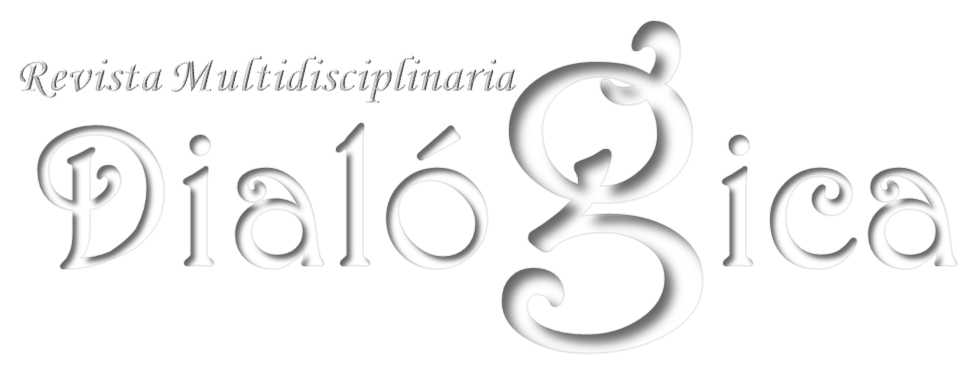THE TEACHING AND LEARNING OF FORMAL SYSTEMS, OF MATHEMATICS IN THE UNIVERSITY CONTEXT
DOI:
https://doi.org/10.56219/dialgica.v17i2.1521Keywords:
teaching / learning, formal system, university contextAbstract
The purpose of the research was the teaching / learning of the formal systems of mathematics in the university context, motivated by the dissatisfaction of both teachers and students in relation to the use of ordinary language and its formal conception, to understand the true meaning of the use of logical symbolism, conceptual limitations, understanding of abstract nature, and logical reasoning. The objectives set were to analyze the teaching / learning of the formal systems of mathematics in the university context implemented by the teachers, to evaluate the abilities of the teacher in the teaching / learning of the formal systems of mathematics and; and strengthen the lines of action in the teaching / learning of the formal systems of mathematics. The research was qualitative; Two (02) moments were taken into account: one, related to the exploration carried out and the other, with the collection of information, to the research subjects.
References
Brouwer, L. (1975). Obras completas, Ámsterdam, Holanda. North-Holland Publishing.
Carvajal, M. (2011). Lógica, matemáticas y conceptualismo. Revista electrónica Scielo
Contreras, F. (2017). La axiomática. Universidad Nacional del Centro del Perú. Revista Horizonte de la Ciencia, vol. 7, núm. 12.
Davies, T. (1973). El enfoque científico. Prensa Académica Londres, (1)
Díaz, M. (2015). Los modelos de descentralización educativa en América Latina. Revista de la CEPAL, volumen 68, N° 45, enero 2018.
Gairín, J. y Armengol, C. (2013). Interacciones en el aula desde prácticas pedagógicas efectivas. Revista de estudios y experiencias en educación. Volumen 18, N° 36, abril 2019. Universidad Autónoma de Barcelona, España.
Giovannini, E. (2016). Lenguaje ordinario y formalización en la temprana concepción axiomática de Hilbert. SIRCA Publicaciones Académicas, Representaciones, Vol. XII, N° 2 - Nov. 2016.
Gómez, P. y Gómez C. (1999). Sistemas formales informalmente. ¿Por qué intentaron formalizar a la matemática si era tan buena muchacha? .Colombia. Cargraphics.
Hargreaves, J. (2013). Estudiar matemáticas: el eslabón perdido entre la enseñanza y el aprendizaje. Barcelona: Horsori e ICE de la Universidad de Barcelona.
Hernández, S. (2003). Metodología de la investigación. México. Mc Graw Hill.
Hurtado, I. y Toro, J. (2007). Paradigmas y Métodos de Investigación en Tiempos de Cambio. Caracas: Episteme Consultores Asociados.
Kane, T., Rockoff J. y Staiger, D. (2008). ¿Qué nos dice la certificación sobre la eficacia de los maestros? Revista de Economía de la Educación, 27. New York
Martínez, M. (2004). La Investigación cualitativa etnográfica en educación. Manual teórico práctico. México: Trillas.
Martínez, M. (2006). Nuevos Métodos de Investigación. México, Trillas.
Martínez, M. (2009). Nuevos Paradigmas en la Investigación. Caracas: Alfa.
Miles, M. y Huberman, A. (1994). Análisis de datos cualitativo. Londres. Sage.
Moreno, B. (2007). Los sistemas formales como fundamento de las Matemáticas. Cuadernos de Docencia - Revista Digital de Educación. Año I - Volumen I, Número 2.
Perero, J. (1914). Historia de las matemáticas, estructuración de la información. Recuperado el 29 de mayo de 2020 de http://almez.pntic.mec.es/~agos0000/.
Real Academia de la Lengua Española. (2020). Matemática. En el Diccionario de la lengua española. Recuperado el 29 de mayo de 2020 de https://dle.rae. es/matem%C3%A1tico#ObS8ajk
Sandín, E. (2003). Investigación Cualitativa. Madrid. Mc Graw and Hill
Sandoval, C. (2002). Investigación cualitativa. Colombia. ARFO
Sestier, C. (1997). El SNTE y la política educativa, 1970-1990. Revista Mexicana de Sociología, volumen 2, N° 54, octubre 2003. Universidad de México.
Taylor, S, y Bogdan, R. (2000). Introducción a los métodos cualitativos de investigación: La búsqueda de significados. Nueva York: Paidós
Thompson, A. (1985). Las concepciones del docente sobre las matemáticas y la enseñanza de la resolución de problemas. Resolución de problemas matemáticos: múltiples perspectivas de investigación. Hillsdale, Nueva Jersey: Erlbaum
Zabalza, A. (1991). Diseño y desarrollo curricular. Madrid. Narcea.


 @revistadialogica
@revistadialogica DialogicaUPEL
DialogicaUPEL RevistaDialogicaUPELMaracay
RevistaDialogicaUPELMaracay dialógicaupel@gmail.com
dialógicaupel@gmail.com dialogicaupel.blogspot.com
dialogicaupel.blogspot.com https://issuu.com/dialogicaupel
https://issuu.com/dialogicaupel https://revistas.upel.edu.ve/index.php/dialogica/
https://revistas.upel.edu.ve/index.php/dialogica/









